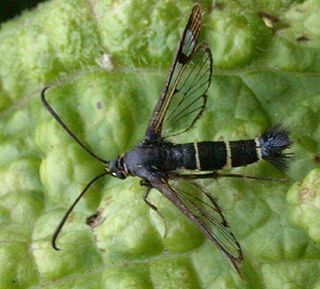
The Sesiidae or clearwing moths are a diurnal moth family in the order Lepidoptera known for their Batesian mimicry in both appearance and behaviour of various Hymenoptera.

Crambinae is a large subfamily of the lepidopteran family Crambidae, the crambid snout moths. It currently includes over 1,800 species worldwide. The larvae are root feeders or stem borers, mostly on grasses. A few species are pests of sod grasses, maize, sugar cane, rice, and other Poaceae. The monophyly of this group is supported by the structure of the tympanal organs and the phallus attached medially to the juxta.

Hypena is a genus of moths in the family Erebidae. It was first described by Franz von Paula Schrank in 1802. These non-migratory moths overwinter as pupae and almost never come to bait as adults.

Lophocampa is a genus of moths in the family Erebidae. The genus was erected by Thaddeus William Harris in 1841. It contains around 75 species.
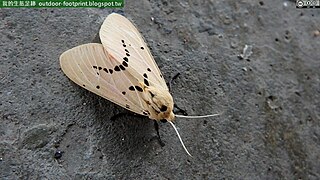
Spilarctia is a genus of moths in the family Erebidae. The genus was erected by Arthur Gardiner Butler in 1875.
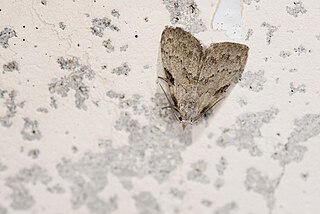
Manoba is a genus of moths in the family Nolidae. The genus was first described by Francis Walker in 1863.
Teracotona is a genus of moths in the family Erebidae from the Afrotropics. The genus was erected by Arthur Gardiner Butler in 1878.

Eoophyla is a genus of moths of the family Crambidae. It was erected by Charles Swinhoe in 1900.

Herpetogramma is a genus of moths of the family Crambidae described by Julius Lederer in 1863. It currently comprises 106 species and is found in North America, Eurasia, Australia, New Zealand, Central and South America. Of the few species where host plants are known, the larvae mostly feed on grasses.

Palpita is a genus of moths of the family Crambidae. Members of the moth genus Stemorrhages may be very similar in appearance.

Scoparia is a grass moth genus of subfamily Scopariinae. Some authors have assigned the synonymous taxon Sineudonia to the snout moth family (Pyralidae), where all grass moths were once also included, but this seems to be in error.

Catephia is a genus of moths of the family Erebidae. Most species of this genus are found in Africa.
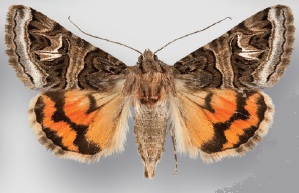
Drasteria is a genus of moths in the family Erebidae.

Procridinae is a subfamily of the family Zygaenidae.
Staphylinochrous euryphaea is a species of moth of the Anomoeotidae family. It is found in Cameroon and Ghana.
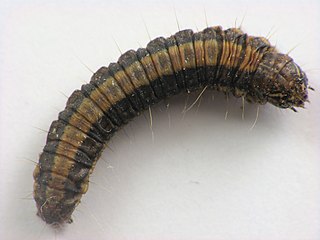
The Epipaschiinae are a subfamily of snout moths. Almost 600 species are known today, which are found mainly in the tropics and subtropics. Some occur in temperate regions, but the subfamily is apparently completely absent from Europe, at least as native species. A few Epipaschiinae are crop pests that may occasionally become economically significant.
The Metarbelidae are a family of the Cossoidea also called the carpenter or goat moths, and is sometimes treated as a subfamily, Metarbelinae of the Cossidae. No synapomorphies are shared with the Cossidae based on adult morphology. The family Metarbelidae was first described by Embrik Strand in 1909.
Arbelodes is a genus of moths in the family Metarbelidae.

Metarbela is a genus of moths in the family Cossidae described by William Jacob Holland in 1893.
Ortharbela is a genus of moths in the family Cossidae.














